Indigenous Governance Database
Constitutions

Tsawwassen First Nation: Law and Policy
Tsawwassen's story about creating laws and policies after their historic treaty signing provides important insight for all First Nations who wish to develop laws and policy.
Joseph P. Kalt: The Nation-Building Renaissance in Indian Country: Keys to Success
Harvard Project on American Indian Economic Development Co-Director Joseph P. Kalt presents on the Native nation-building renaissance taking root across in Indian Country, and shares some stories of success.
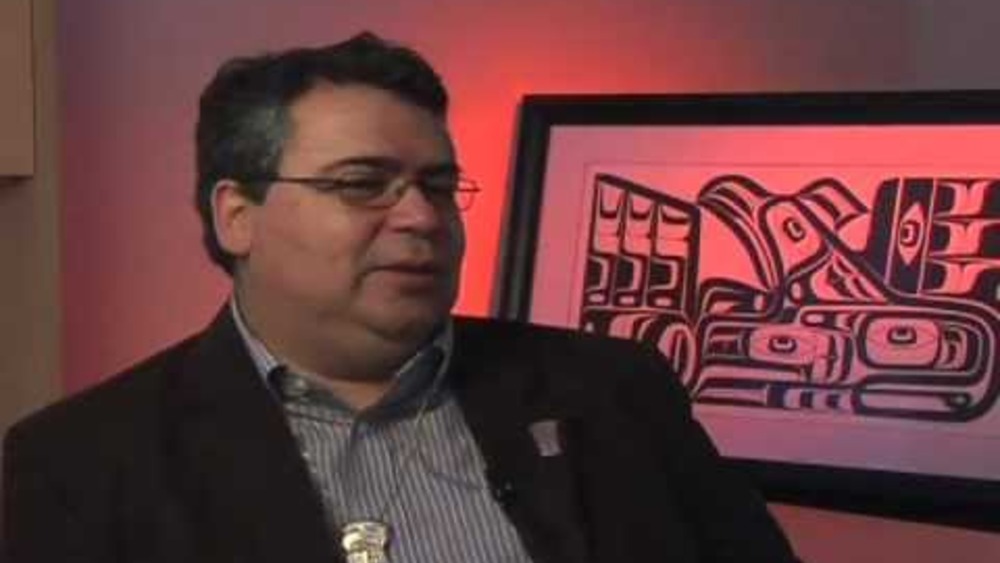
Developing a First Nation Constitution
Chiefs, Administrators and Advisors discuss the importance of constitutions and the work involved in developing their own nation's constitution.
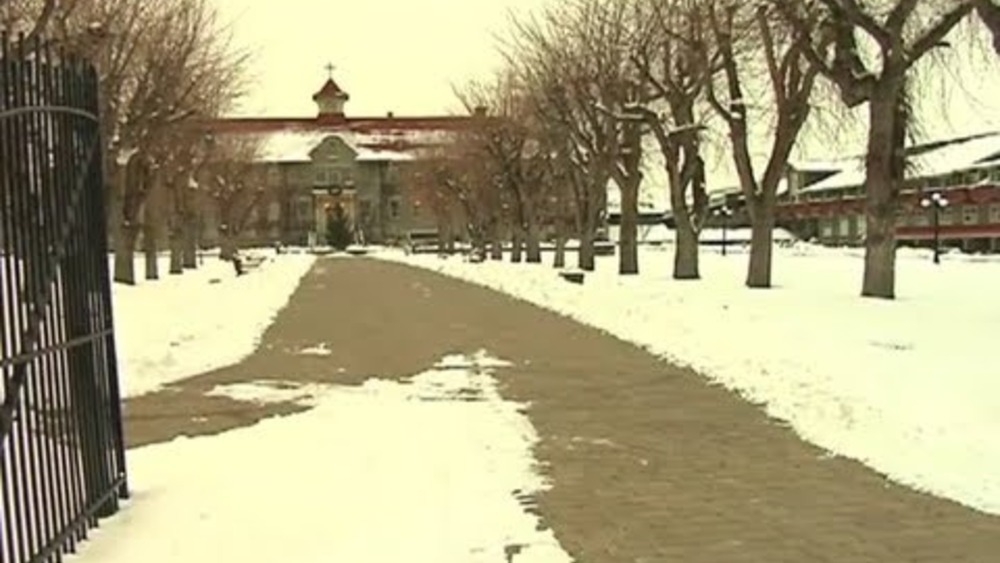
Ktunaxa Nation: Building from their Vision
This video, produced by the National Centre for First Nations Governance, offers a history behind the vision or mission statement of the Ktunaxa Nation in British Columbia.
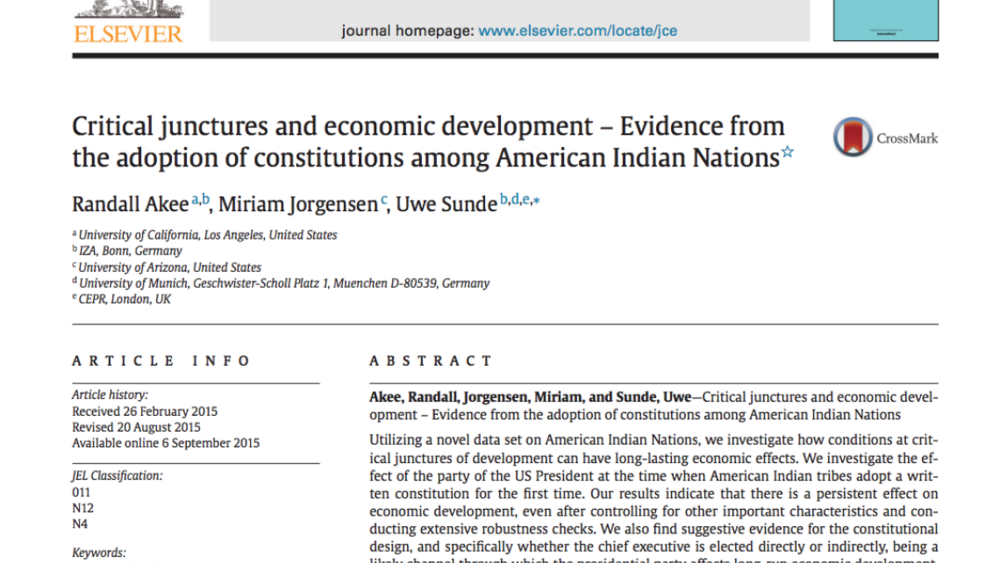
Critical junctures and economic development - evidence from the adoption of constitutions among American Indian nations
Utilizing a novel data set on American Indian Nations, we investigate how conditions at critical junctures of development can have long-lasting economic effects. We investigate the effect of the party of the US President at the time when American Indian tribes adopt a written constitution for the…
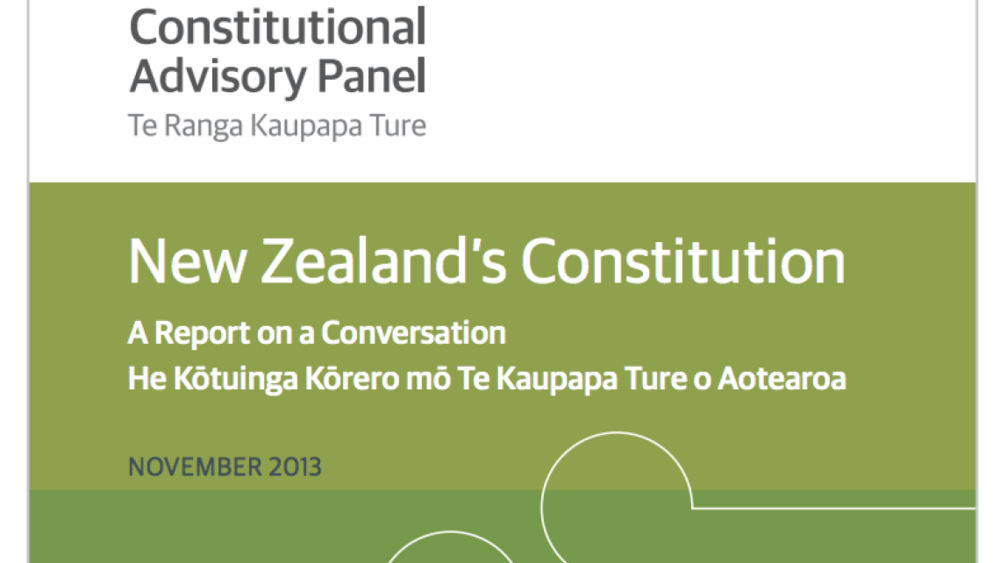
New Zealand's Constitution: A Report on a Conversation He Kotuinga Korero mo Te Kaupapa Ture o Aotearoa
The appointment of the Constitutional Advisory Panel in August 2011 was another step in a longer and continuing conversation about how to govern the people, land and resources of Aotearoa New Zealand.The Panel was appointed as part of the Consideration of Constitutional Issues, which was agreed to…
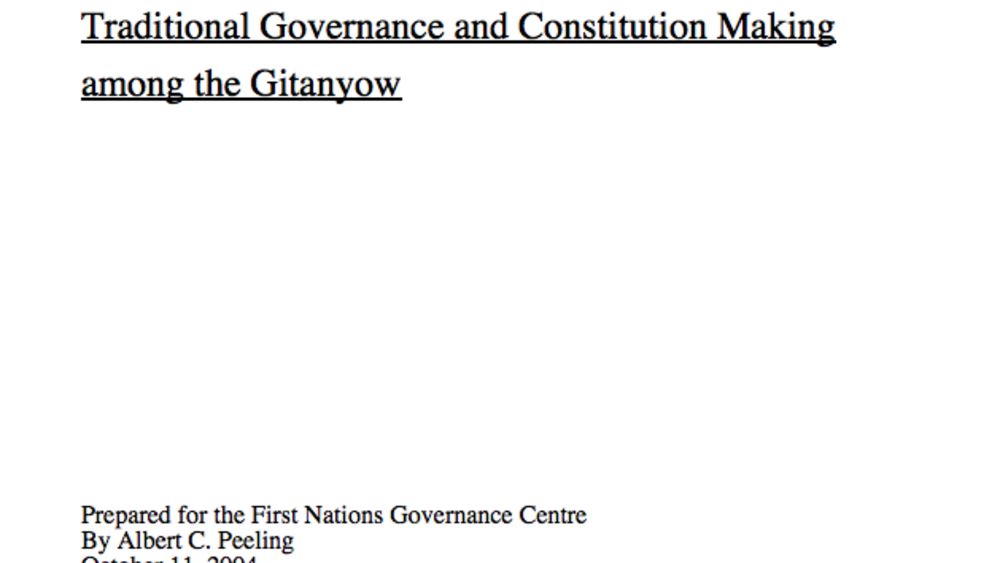
Traditional Governance and Constitution Making among the Gitanyow
This paper is a report on traditional governance and constitution making among the Gitanyow people prepared for the Gitanyow and for the First Nations Governance Centre. The Gitanyow are well along in the development of a national constitution based on traditional governance, and this paper will…
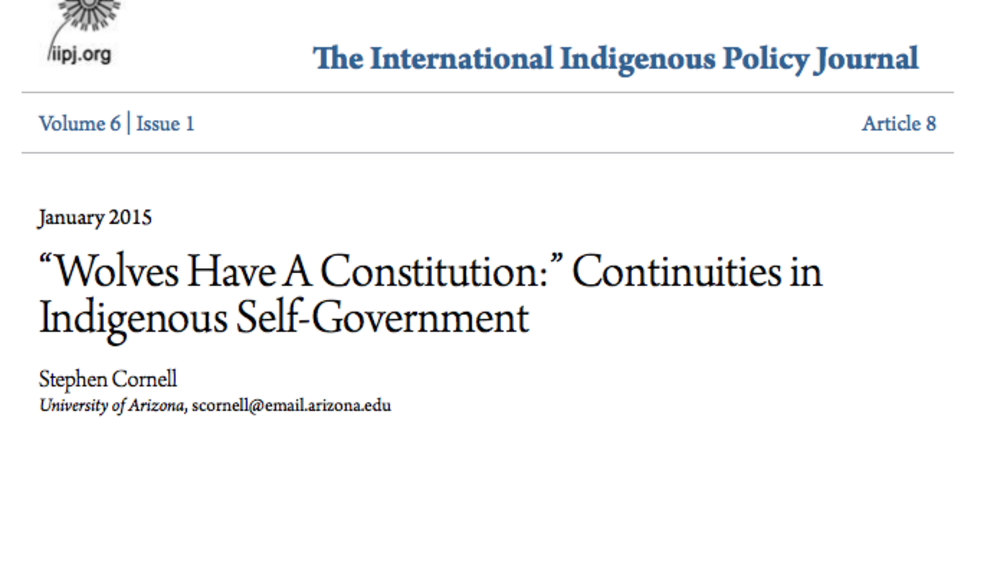
Wolves Have A Constitution: Continuities in Indigenous Self-Government
This article is about constitutionalism as an Indigenous tradition. The political idea of constitutionalism is the idea that the process of governing is itself governed by a set of foundational laws or rules. There is ample evidence that Indigenous nations in North America–and in Australia and New…
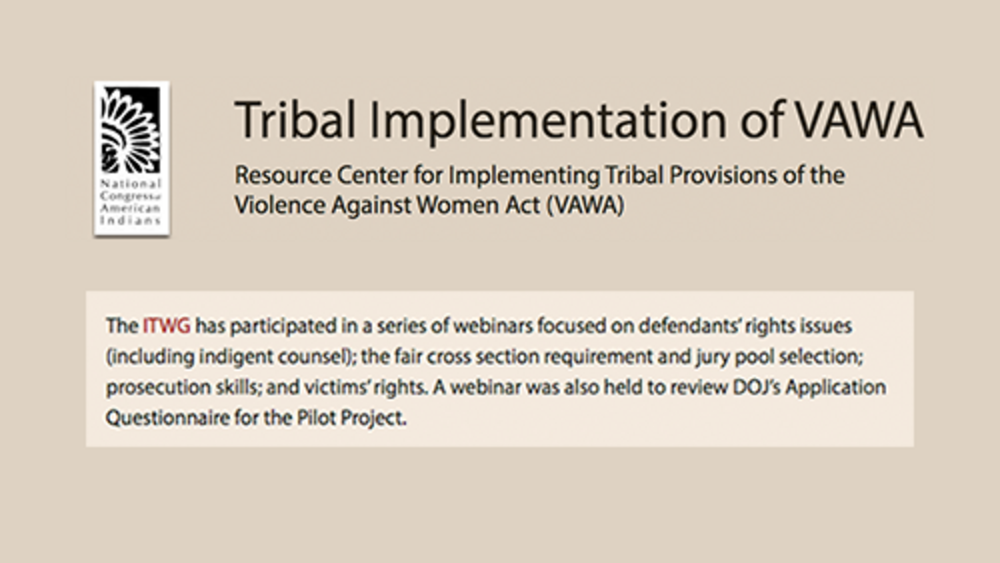
Resource Center for Implementing Tribal Provisions of the Violence Against Women Act (VAWA): Webinars
The Intertribal Technical-Assistance Working Group on Special Domestic Violence Criminal Jurisdiction (ITWG) has participated in a series of webinars focused on defendants' rights issues (including indigent counsel); the fair cross section requirement and jury pool selection; prosecution skills;…
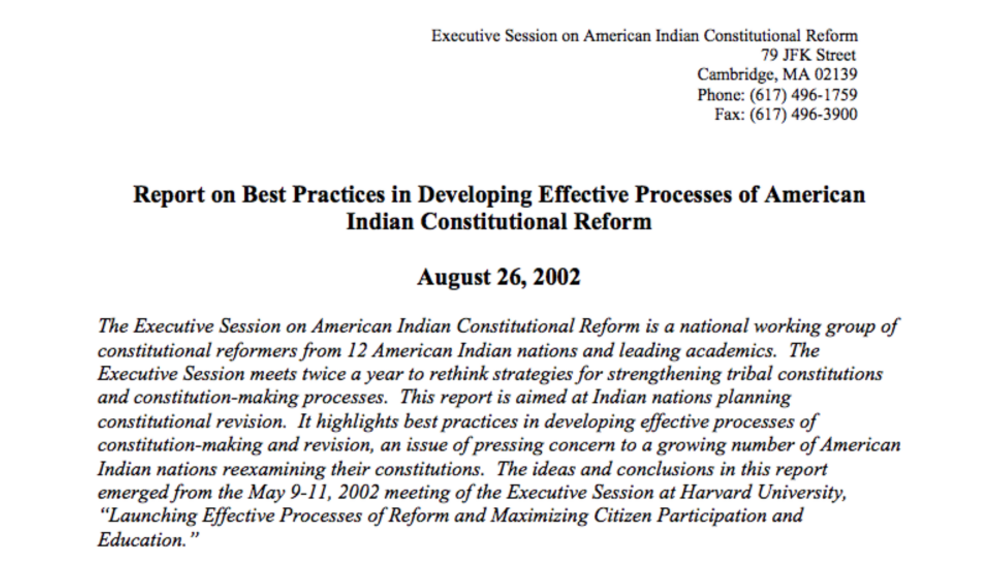
Report on Best Practices in Developing Effective Processes of American Indian Constitutional Reform
The Executive Session on American Indian Constitutional Reform is a national working group of constitutional reformers from 12 American Indian nations and leading academics. The Executive Session meets twice a year to rethink strategies for strengthening tribal constitutions and constitution-making…
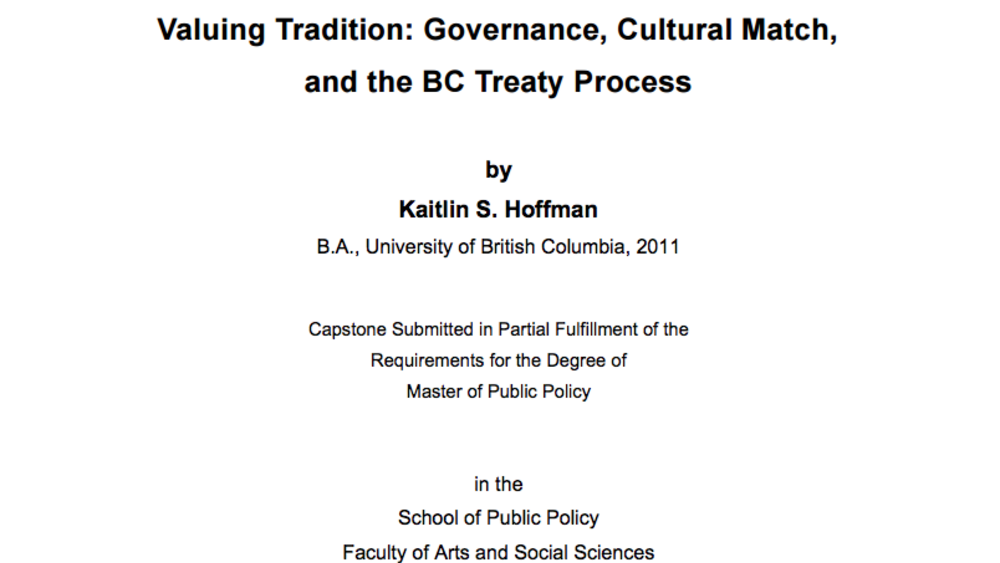
Valuing Tradition: Governance, Cultural Match, and the BC Treaty Process
Self-governance negotiations are an integral part of British Columbia's modern day treaty process. At some treaty tables, impasses have resulted from differences on how to include traditional First Nations governance within treaty. Although some First Nations are determined to pursue traditional…
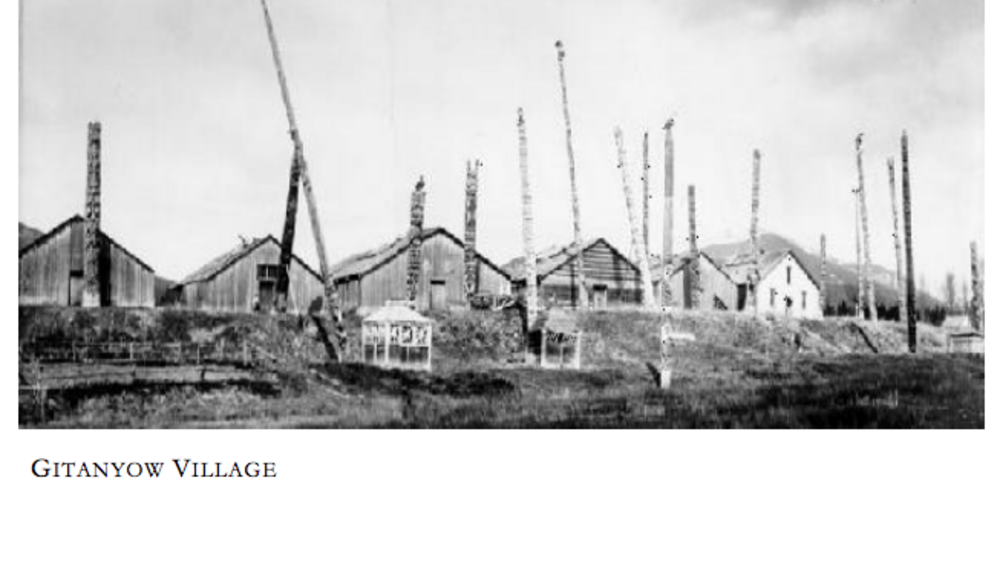
The Gitanyow Ayookxw: The Constitution of the Gitanyow Nation
WE are the Gitanyow peoples. We have a long-standing and rich oral tradition which speaks to all aspects of our lives. This written Constitution must be interpreted and understood in the context of our oral history and oral traditions... THEREFORE, by virtue of our inherent right to…
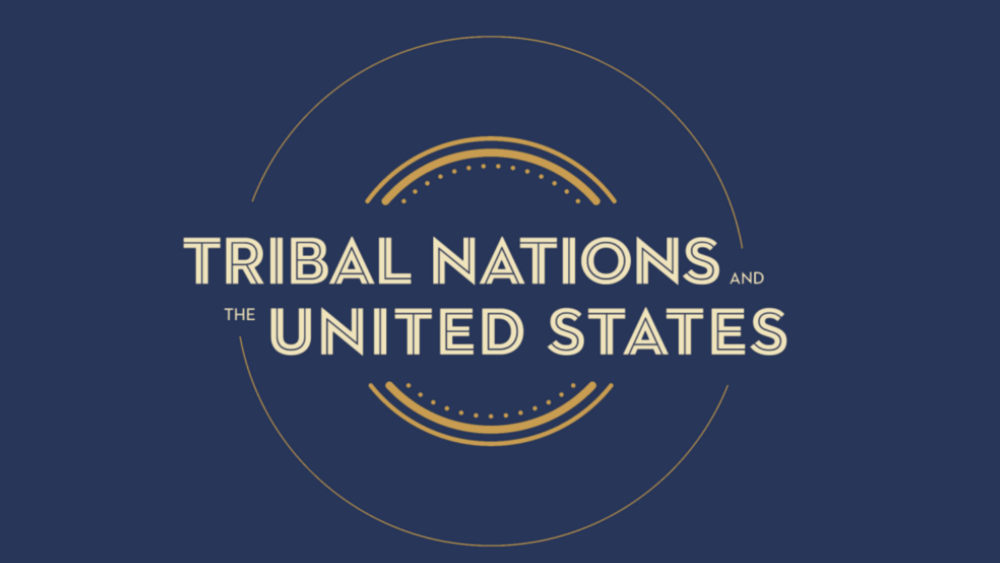
Tribal Nations and the United States: An Introduction
Tens of millions of Indigenous peoples inhabited North America, and governed their complex societies, long before European governments sent explorers to seize lands and resources from the continent and its inhabitants. These foreign European governments interacted with tribes in diplomacy, commerce…
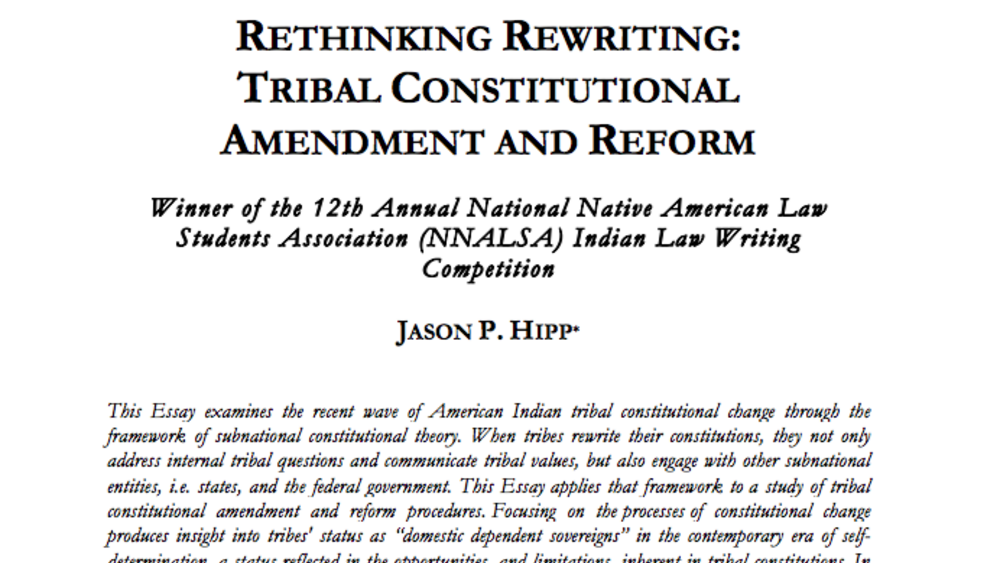
Rethinking Rewriting: Tribal Constitutional Amendment and Reform
This essay examines the recent wave of American Indian tribal constitutional change through the framework of subnational constitutional theory. When tribes rewrite their constitutions, they not only address internal tribal questions and communicate tribal values, but also engage with other…
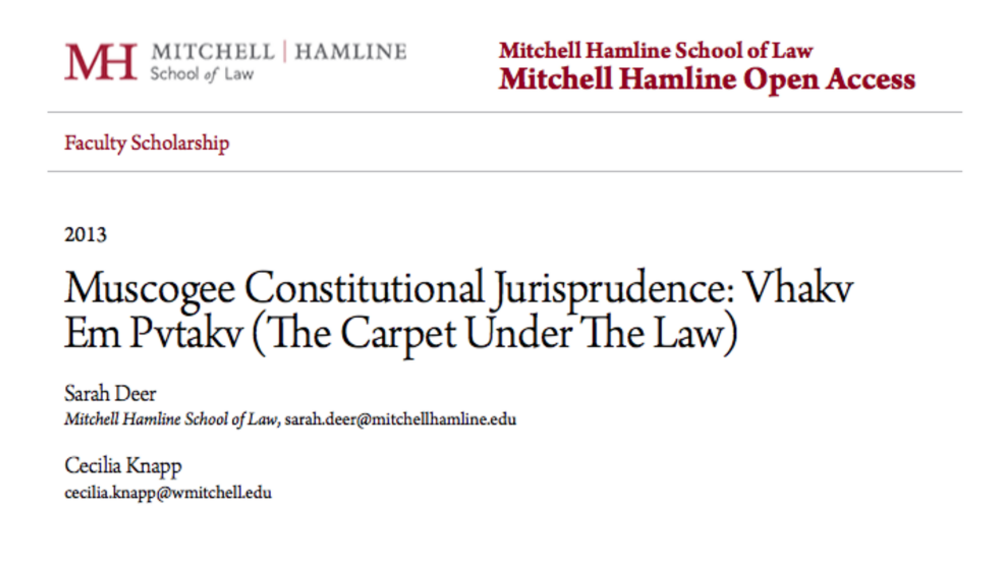
Muscogee Constitutional Jurisprudence: Vhakv Em Pvtakv (The Carpet Under The Law)
In 1974, a group of Mvskoke citizens from Oklahoma sued the federal government in federal court. Hanging in the balance was the future of Mvskoke self-determination. The plaintiffs insisted that their 1867 Constitution remained in full effect, and that they still governed themselves pursuant to it…
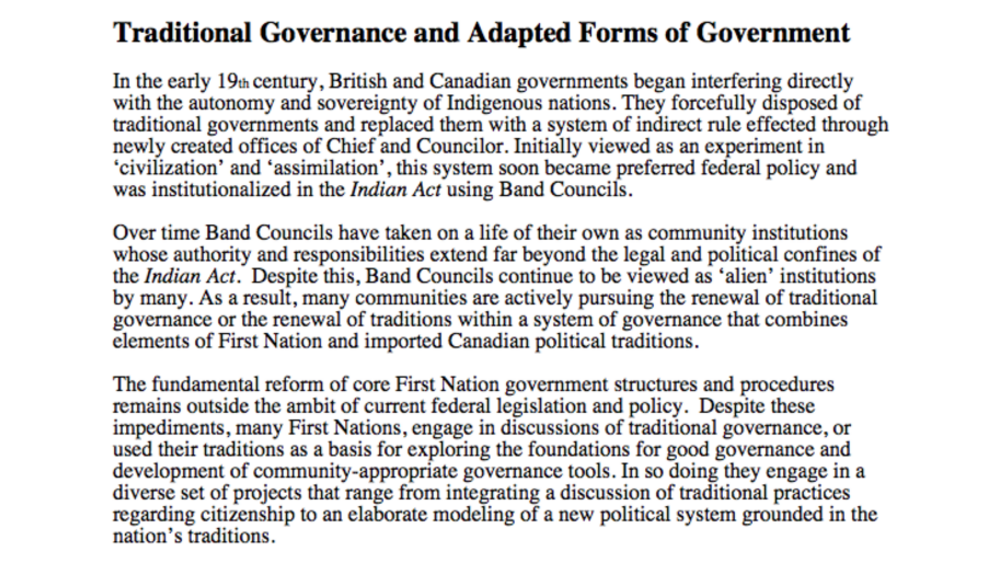
Traditional Governance and Adapted Forms of Government
In the early 19th century, British and Canadian governments began interfering directly with the autonomy and sovereignty of Indigenous nations. They forcefully disposed of traditional governments and replaced them with a system of indirect rule effected through newly created offices of Chief and…
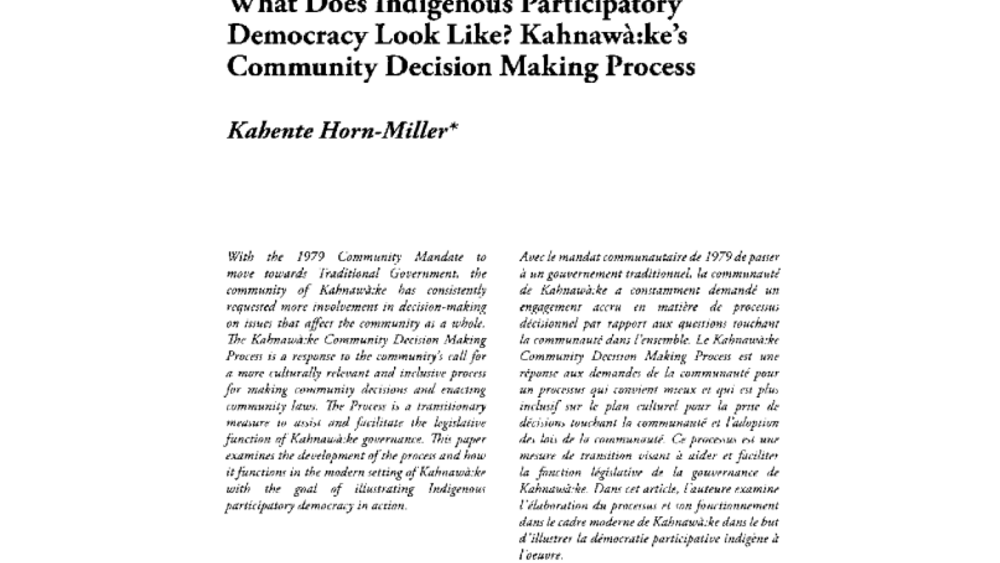
What Does Indigenous Participatory Democracy Look Like? Kahnawà:Ke's Community Decision Making Process
With the 1979 Community Mandate to move towards Traditional Government, the community of Kahnawà:ke has consistently requested more involvement in decision-making on issues that affect the community as a whole. The Kahnawà:ke Community Decision Making Process is a response to the community's call…
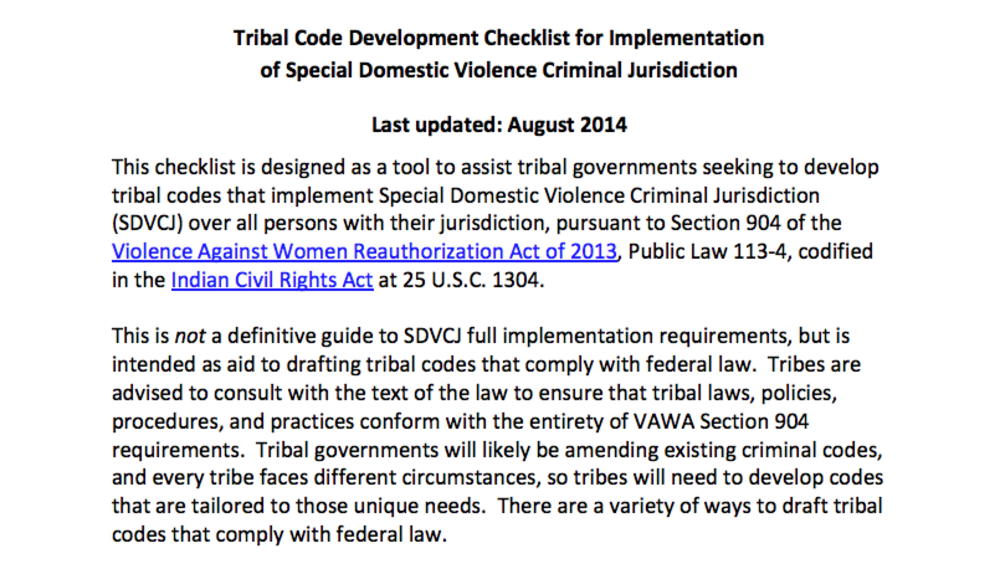
Tribal Code Development Checklist for Implementation of Special Domestic Violence Criminal Jurisdiction
This checklist (click to download) is designed as a tool to assist tribal governments seeking to develop tribal codes that implement special domestic violence criminal jurisdiction (SDVCJ) under section 904 of VAWA 2013. Tribal governments will likely be amending existing criminal codes, and every…
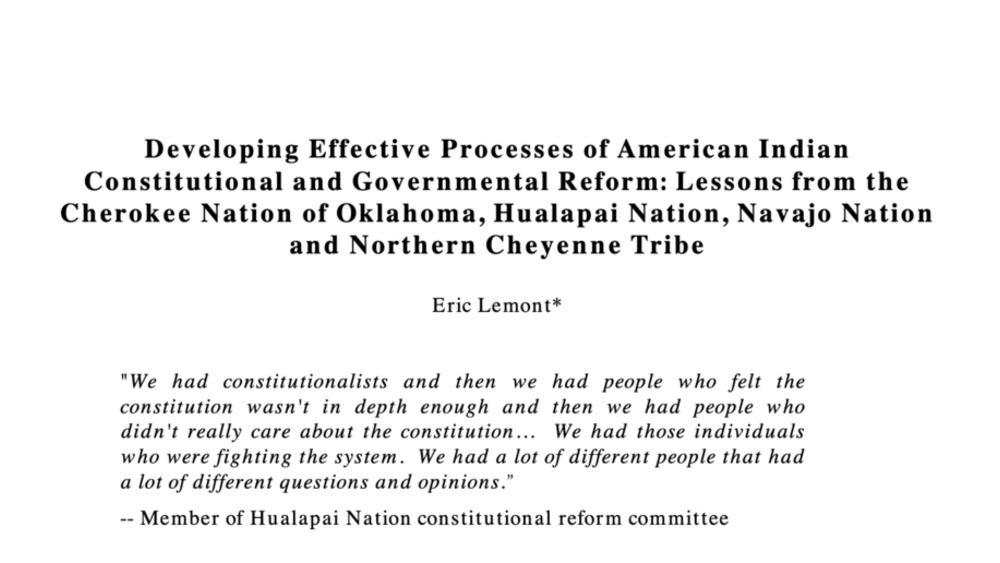
Developing Effective Processes of American Indian Constitutional and Governmental Reform: Lessons from the Cherokee Nation of Oklahoma, Hualapai Nation, Navajo Nation and Northern Cheyenne Tribe
Over the past several decades, numerous American Indian nations have been revising their constitutions to create more legitimate, effective and culturally-appropriate governments. However, successful processes of reform have been hindered by a variety of universal challenges, including political…
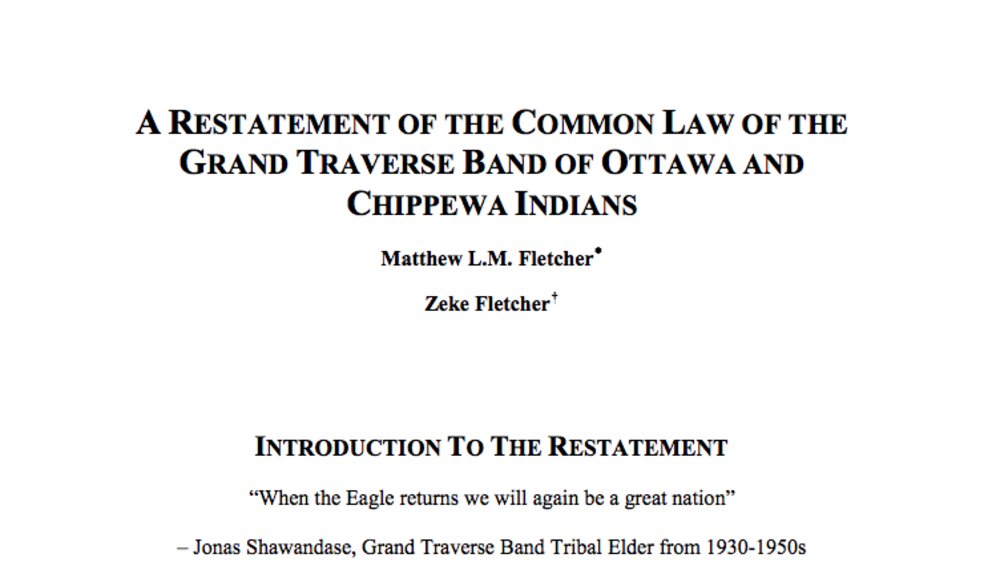
A Restatement of the Common Law of the Grand Traverse Band of Ottawa and Chippewa Indians
From 1872 until 1980 the United States government continually refused to recognize the sovereign status of the Grand Traverse Band of Ottawa and Chippewa Indians (GTB). For example, citizens of the Grand Traverse Band unsuccessfully attempted to regain this government-to-government relationship in…
Pagination
- First page
- …
- 17
- 18
- 19
- …
- Last page
